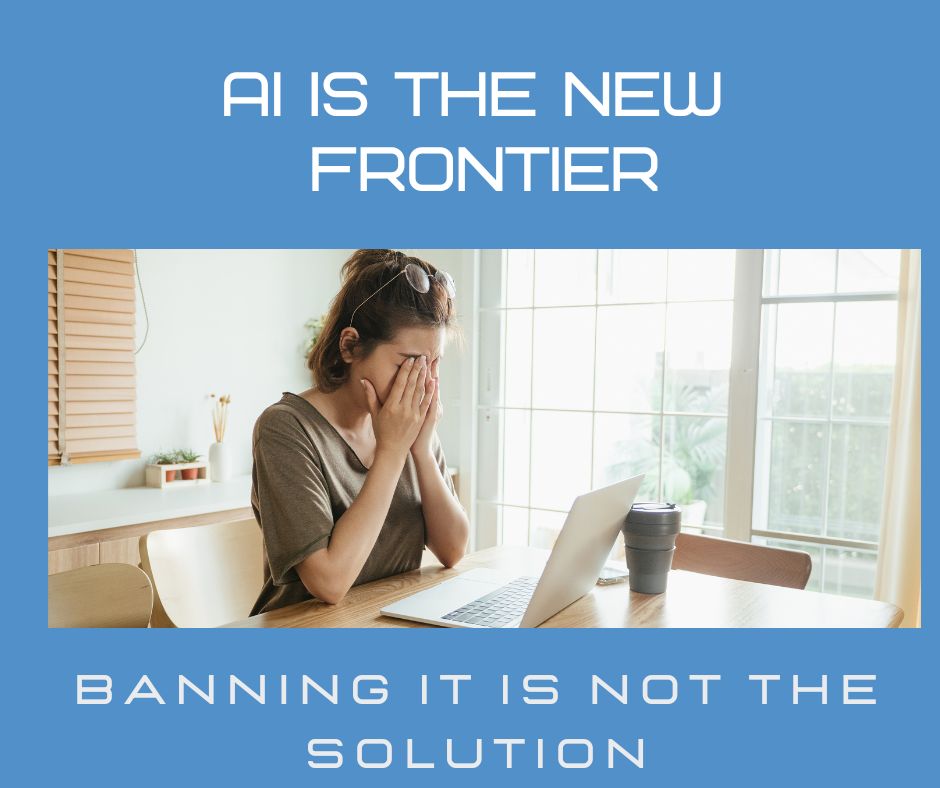A short 9 months ago, most device users never gave a bit of attention to AI-Artificial Intelligence. They let their cars tell them how to get to different places. Alexa turned on their music of choice without them having to scan radio channels to find something of interest. I used it to check my grammar and word structure while writing a document. The search engines that find information artificially generate what is only found on the internet. It doesn’t research anything not on the internet. Paid articles receive more attention because the algorithm directs the search engine to them. Artificial intelligence has been around for over 70 years, but we never gave it a moment’s thought.
It wasn’t until ChatGPT drew the attention of parents and teachers who discovered their children were using the App to write essays, do homework, and take tests for them. Some students were brazen enough to use the App to write their college admission’s essays. Teachers have resorted to using Apps to detect AI generated material, but they are wrong a fourth of the time, so many students were falsely accused of submitting AI generated essays. The App deterred many students from using this quick and easy way to get work done.
To think students won’t use Apps is idealistic. It’s too tempting because of its ease and speed.
With the knowledge of how AI works and its pitfalls, students will make informed decisions about how they use the information generated by the Apps. It can be useful if used mindfully.
- AI does not have a conscience. It often puts together information incorrectly. Google executives referred to this as “hallucinations.” I call them fake news or more plainly, “lies.”
- AI generated material is incorrect a fourth of the time. One lawyer cited a case in court to support his argument he found using AI. The case was a hallucination, made up by AI which caused the case to be dropped and the lawyer was fined heavily.
- Books generated by AI are recognizable when they are compared to one another. They follow the exact same pattern. When students examine what is generated, they will begin to see other patterns.
- AI can easily create a video that looks real, but isn’t. Exact images of a person can be used to make it look like they said something they didn’t in a place they never visited. A Google executive is most concerned with the fake news AI can create because at this time there is no way of detecting if it is real or not. For this reason, every device user needs to question what they are reading and seeing on the internet.
- When we stop using the parts of our brains that were used to do the tasks Apps can do, we lose access to that part of the brain.
- Using a GPS is really nice until it isn’t working. Brain scans were taken of cab drivers who relied solely on GPS. The part of the brain that did planning showed a loss of activity. Students need to read maps in case their App dies.
- AI can be used to search a topic, but only if the users are willing to fact check everything it generates. I looked for information about the brain to update my presentation, and I discovered AI was missing a lot of information that I learned from reading books. AI can only generate what a human submitted to the internet. It will put the information together incorrectly, so it is up to humans to fact check.
- Many jobs that students might be thinking about entering after college might be taken over by AI Apps. They need to be ahead of the game by searching for other options, or better yet, develop their own apps. They can see a challenge and create a solution.
Students introduced to this information quickly realized they couldn’t trust anything on the internet anymore without checking it first. They used to trust everything. The time has come to develop questioning abilities.
Reality
Telling students not to use Apps is like asking teens not to drink. It becomes more tempting. When they are taught how to use them mindfully, they will be prepared for what comes next, That is the unknown.
Questioning is more important today than ever before. Knowing when and how to ask effective questions requires training. My newest book, Questioning- An Essential Skill for the 21st Century Student is packed with reasons to ask, helping students overcome their fear of asking, and examples of questions that will help them determine if their generated material is reliable.
